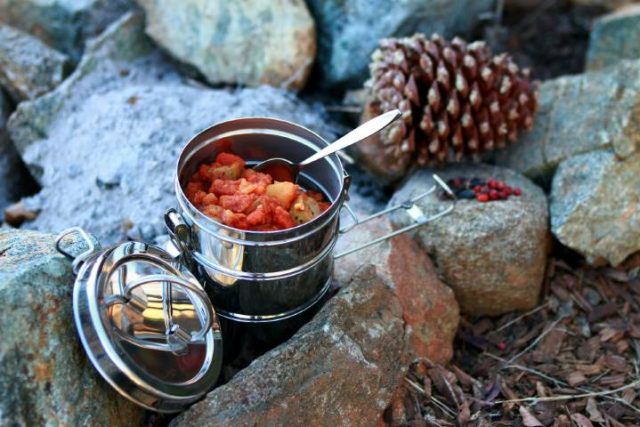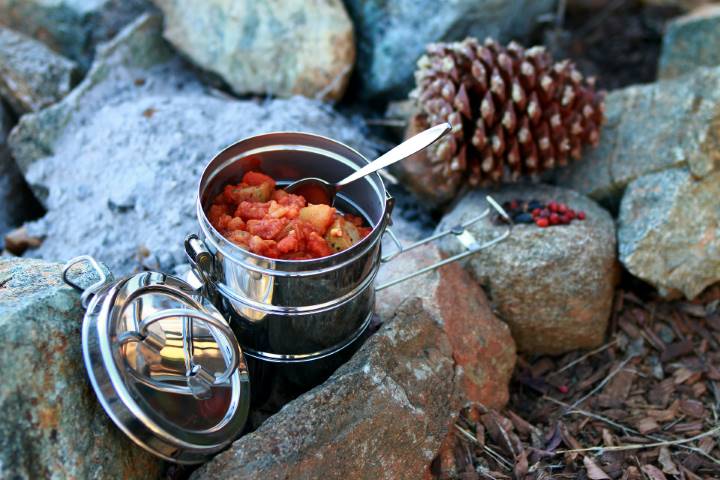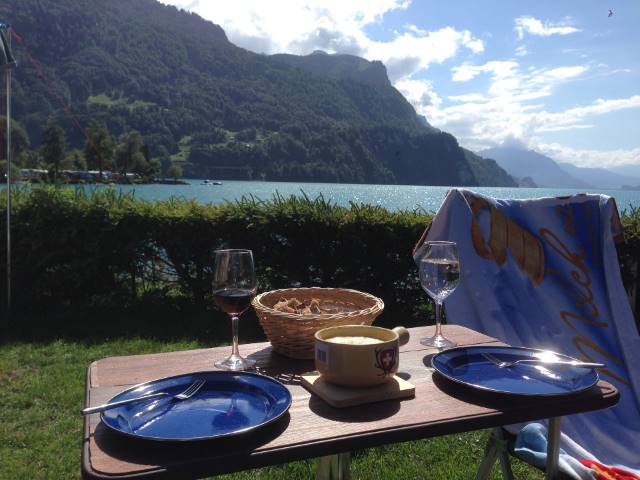
If you plan on going camping for the weekend, meal planning should be at the top of your to-do list. Camping with family and friends is a lot of fun. However, you are unlikely to enjoy your campfire songs, hikes, or roasts without proper meals. Camping with a group is more complicated than camping alone and it requires more effort in planning. Even though coordinating food for a large group may seem overwhelming, here are a few tips that can make it easier;

1. Ask About Allergies
Find out if anyone in your camping group is allergic to certain foods before creating a meal plan. Check out if anyone has any food aversions or preferences. You do not want to prepare a delicious meal only to realize that some people in the group cannot eat it.
Avoid common allergens like soybeans and peanuts to be safe. Where possible, bring vegan and vegetarian alternatives, gluten-free, and low-fat food options. Having variety ensures that you have safe options for every member of the group.
2. Pick Easy Meals
Do not pick meals that require a lot of time or effort in preparation. You should be able to prepare your meals fast and go on with your camping activities. Cooking for a group is challenging and it gets even more complicated when you do not have a full-size kitchen.
Stir-fry is one of the best food options. It is easy to scale up and can be a crowd-pleaser even if you do not have any fancy ingredients, other easy camping meals for large groups include sandwiches, sausages, pancakes, spaghetti, chicken breast, and salads. Pick simple flavor pallets that can appeal to everyone including picky eaters.
3. Plan Daily Menus and Prep Beforehand
While preparing for camping, prep meals for every day. You should not have to think of a meal at the moment. Planning daily menus makes it easy to prepare. It makes your camping experience smoother. When camping with your family or friends, you should be able to relax and enjoy. However, juggling multiple inputs and opinions can be hard work. It would be wise to do the hard work before your camping trip.
Prepping beforehand will streamline your cooking. Prep as many meals as you can. You can prepare most camping meals before leaving your home. With pancakes, for example, you can have your batter ready several days in advance. For stir-fried vegetables, you can chop up the vegetables before leaving.
4. Plan to Eat the Perishables First
When making your meal plan, try to avoid perishable foods unless you will have a working refrigerator. Canned sauce, pasta, and guacamole with lime juice are great food choices. Celery and carrots are great veggie options as they hold up well. Greens and cucumber salads are good for camping as they do not wilt.
If you have to include perishable foods in your diet, prepare to eat them first. Marinated chicken, for example, should be eaten on the first day. You can save canned tomato sauce and pasta for later days. When packing your cooler, ensure that the perishable foods are placed directly on ice. They will be colder and less likely to spoil.
5. Pick Grab-and-Gos and Meals That Cook Over Fire
While it is important to have meals that you can cook over the fire, you also need snacks to grab and go, because being outdoors and going through with your camping activities gets you hungry quickly. Your camping group should have access to easy snacks. You should not have to cook every time someone gets hungry.
The goal should be to find a balance between fire-cooked foods and snacks. One of the best things about camping is building a fire from scratch and cooking over it. The experience is fulfilling and it can create a sense of accomplishment. However. It takes a lot of time and effort.
6. Don’t Forget the Silverware

Forgetting the silverware is one of the most common camping mistakes. Everyone gets to the campsite, puts the tents up, and prepares dinner only to remember that they have no silverware.
When preparing to go camping, pack enough plates, napkins, and silverware for everyone in the group. Having a little more than you need is always a good idea as you are likely to go through several items throughout the day.
Even though preparing meals for a large group can be complicated, a little effort in preparation can make things much easier. The most important things to keep in mind include taking note of allergies, picking meals that are easy to prepare, and planning daily menus.





